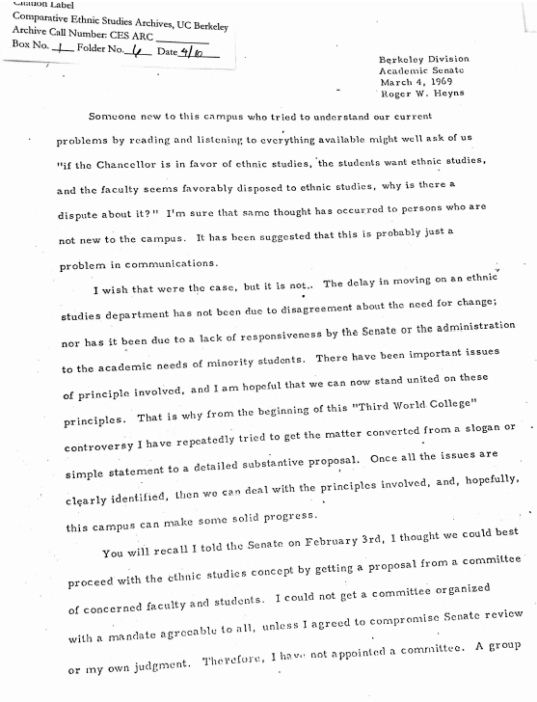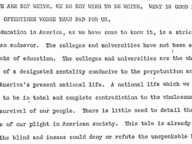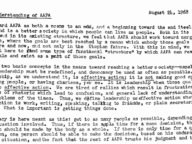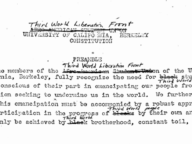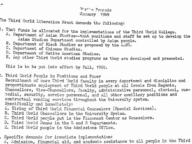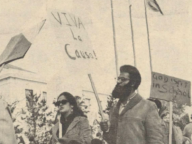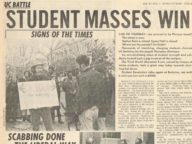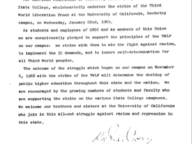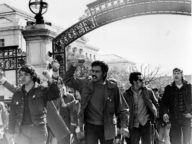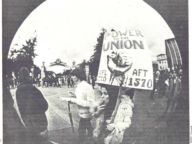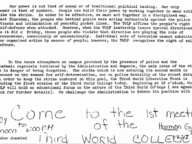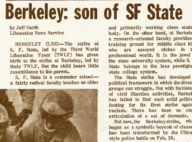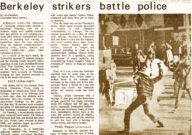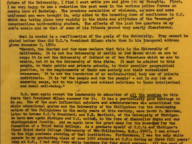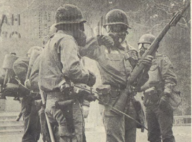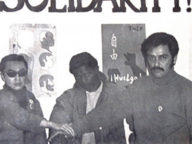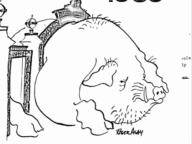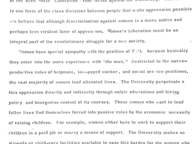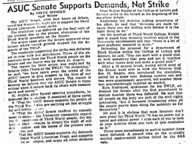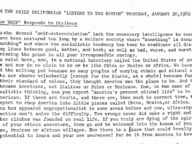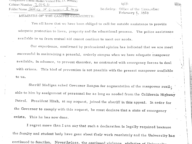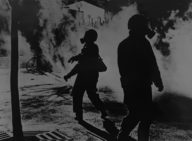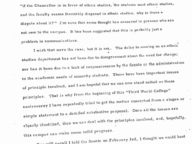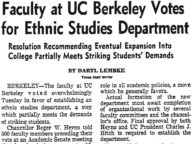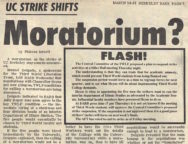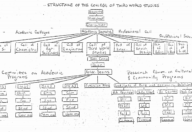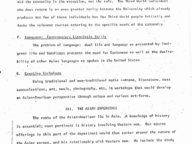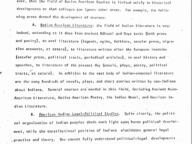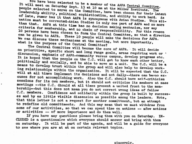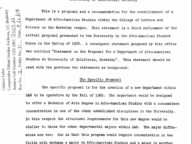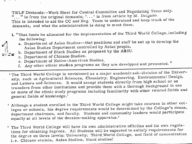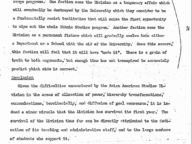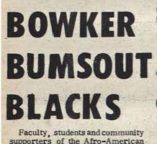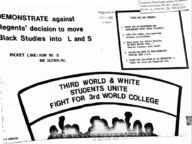In his address to Cal’s Academic Senate, Chancellor Roger Heyns punted responsibility for the strike and for the issues it had forcibly raised.
Heyns was committed to restricting the autonomy of the proposed Third World College: this larger paternalism was evident in how the Chancellor commented on the Third World College and the strike, while pushing back on the fundamental demands put forth by the Third World Liberation Front. In many of his points, he emphasized the need for a new unit to be subject to the same jurisdictional limitations of other units while insisting that “these principles will not inhibit in any way our academic needs of students — whether they be academic or remedial.”
Notably, the Chancellor referred to the “unit” as the Department of Ethnic Studies rather than a Third World College—a sign of his resistance to the vision of a Third World College that would be responsive to a community outside the university rather than existing as a department among other departments. With his different mentions of involvement in the autonomy and functioning of the unit, whether it be students or the community, Heyns reinforced the idea of the university as an ivory tower, an entity detached from the community it interacts with.
His address also raises questions about the true meanings of autonomy and self-determination within the University: how would a Third World College be able to exercise full autonomy as a unit, given that it would exist under the umbrella of a larger University that was complicit in the exclusion and repression of Third World communities, faculty, staff, and students?
